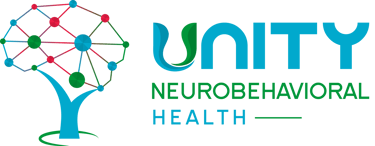Grief and the Brain: Navigating Loss Through a Neuropsychological Lens
Grief doesn't just affect the heart, it reshapes the brain. This post explores the neuropsychological impact of loss, from memory lapses and brain fog to emotional dysregulation. Learn how the grieving brain functions, why some forms of grief become prolonged, and which healing practices can support both emotional and cognitive recovery.
Luis Efren Aguilar, Psy.D.


Grief is an inevitable part of life, but its effects on the brain and body are profound. When we lose someone or something important to us, our entire nervous system responds.
What Happens in the Brain During Grief?
Activation of the anterior cingulate cortex and insula (pain and emotion regulation)
Disruption of the default mode network (affecting self-reflection and memory)
Decreased activity in the prefrontal cortex (executive functioning)
Symptoms of Grief-Related Cognitive Impairment
Brain fog or forgetfulness
Difficulty concentrating
Sleep disruption and emotional dysregulation
These symptoms are not signs of weakness—they are natural neurocognitive responses to loss.
Healthy Grieving Practices
Create rituals and memorials
Engage in expressive writing or art
Seek support through grief counseling or therapy
Grief Is Universal, But Not Uniform: Honoring Cultural Perspectives
Grief touches everyone, but how we express, process, and make meaning of loss is deeply influenced by culture. In some communities, grief is reserved and private. In others, it is communal and expressive, involving storytelling, music, spiritual rituals, or extended periods of mourning.
These expressions are not merely traditions, they reflect the values, spirituality, and resilience of entire communities.
Being inclusive in grief support means:
Respecting cultural beliefs about death, loss, and healing
Avoiding assumptions about how someone should grieve
Creating space for rituals, language, and practices that honor diverse experiences
By embracing cultural humility, we move toward more compassionate, effective, and meaningful support for those who grieve.
Complicated Grief
If grief symptoms persist beyond 6–12 months and interfere with functioning, it may evolve into Prolonged Grief Disorder, requiring professional intervention.
Common signs include:
Intense yearning or preoccupation with the deceased
Difficulty accepting the loss
Social withdrawal or loss of purpose
Inability to resume everyday activities
Early recognition and treatment are key to supporting long-term recovery and emotional health.
Resources:
GriefShare – Support groups and programs for navigating loss
Dougy Center – Grief resources for children, teens, and families
Hospice Foundation of America – Education and tools for coping with grief and caregiving
© 2025 Unity Neurobehavioral Health. All rights reserved.


Office Location
(By Appointment Only)
Physical Address: 118 West Lime Avenue, Suite 101, Monrovia, CA 91016
Telephone: (626) 321-2889
Fax: (626) 593-4199
Email: info@unityneuro.com
